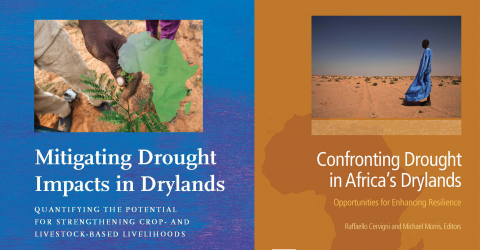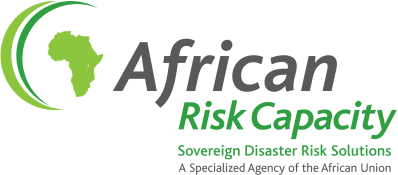
Three-quarters of Africa’s Sub-Saharan Africa’s cropland are drylands, which accounts for two-thirds of its cereal production and four-fifths of its livestock holdings. In East and West Africa, drylands are home to over 300 million people, and a large share of them are households vulnerable to drought. With climate change and population growth, the impact of drought could be even more severe in coming years.
To improve drought resilience in Africa’s drylands, it is key to identify interventions that would make the greatest impact on vulnerable livelihoods. African Risk Capacity’s Research and Development team contributed to the World Bank’s study Confronting Drought in Africa’s Drylands, which evaluated the 20-year impact of implementing drought-mitigating interventions in Africa’s drylands today compared to business-as-usual practices.
The methodology used in Africa RiskView to estimate the number of people affected by drought served as an underlying model for the impact assessment and cost/benefit analysis of drought-mitigating interventions for agriculture in the World Bank study. The model and methodology are outlined in greater detail in the background study Mitigating Drought Impacts in Drylands. The study was conducted in 2017/18 as a collaborative effort between contributors from various organizations working under the guidance of a team comprised of World Bank and African Risk Capacity's Research and Development staff. By combining high levels of analytical rigor and policy relevance, this work applied the model and its estimated impacts of drought-mitigating interventions to various topics important to the social and economic development of Sub-Saharan Africa.
Conducting collaborative research with partners is a pillar of African Risk Capacity’s work across the continent. Through partnership with governments, multilateral organizations, and research institutions, ARC aims to build the resilience of the governments and peoples of Africa’s drylands against weather shocks that can drive back development gains. Through rigorous research and a focus on policies that work, ARC is providing a comprehensive package for African governments to identify, respond to, and financially address their natural disaster risks and build long-run resilience in the face of a changing climate.





